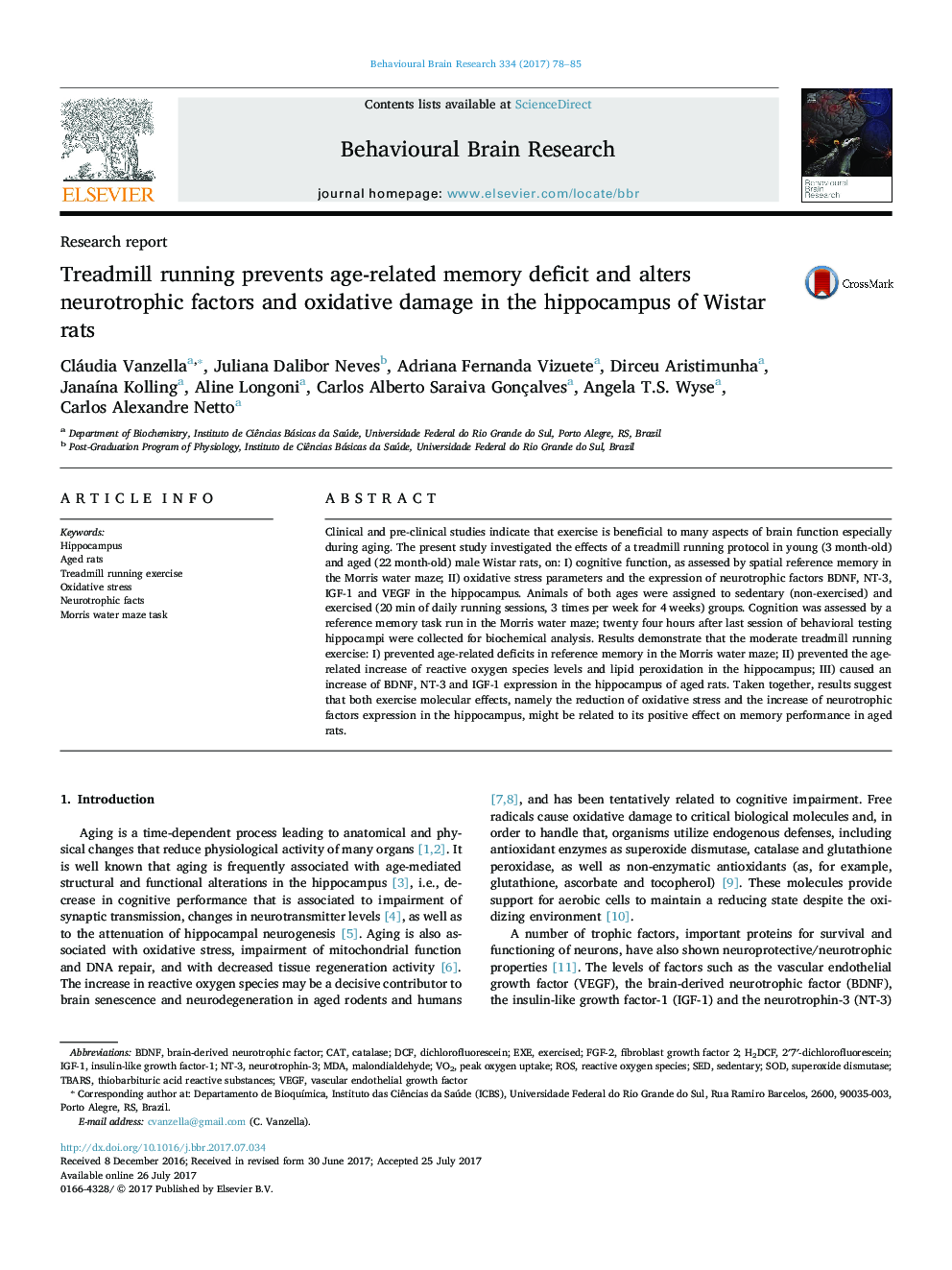| Article ID | Journal | Published Year | Pages | File Type |
|---|---|---|---|---|
| 5735080 | Behavioural Brain Research | 2017 | 8 Pages |
Abstract
Clinical and pre-clinical studies indicate that exercise is beneficial to many aspects of brain function especially during aging. The present study investigated the effects of a treadmill running protocol in young (3Â month-old) and aged (22Â month-old) male Wistar rats, on: I) cognitive function, as assessed by spatial reference memory in the Morris water maze; II) oxidative stress parameters and the expression of neurotrophic factors BDNF, NT-3, IGF-1 and VEGF in the hippocampus. Animals of both ages were assigned to sedentary (non-exercised) and exercised (20Â min of daily running sessions, 3 times per week for 4Â weeks) groups. Cognition was assessed by a reference memory task run in the Morris water maze; twenty four hours after last session of behavioral testing hippocampi were collected for biochemical analysis. Results demonstrate that the moderate treadmill running exercise: I) prevented age-related deficits in reference memory in the Morris water maze; II) prevented the age-related increase of reactive oxygen species levels and lipid peroxidation in the hippocampus; III) caused an increase of BDNF, NT-3 and IGF-1 expression in the hippocampus of aged rats. Taken together, results suggest that both exercise molecular effects, namely the reduction of oxidative stress and the increase of neurotrophic factors expression in the hippocampus, might be related to its positive effect on memory performance in aged rats.
Keywords
MDAH2DCF2′7′-dichlorofluoresceinEXENT-3DcfCATVO2FGF-2dichlorofluoresceinTBARSIGF-1BDNFROSinsulin-like growth factor-1Oxidative stressPeak oxygen uptakeSODSuperoxide dismutasefibroblast growth factor 2Vascular endothelial growth factorVascular Endothelial Growth Factor (VEGF)Brain-derived neurotrophic factormalondialdehydethiobarbituric acid reactive substancesAged ratsSedentaryneurotrophin-3HippocampussedCatalaseMorris water maze taskReactive oxygen species
Related Topics
Life Sciences
Neuroscience
Behavioral Neuroscience
Authors
Cláudia Vanzella, Juliana Dalibor Neves, Adriana Fernanda Vizuete, Dirceu Aristimunha, JanaÃna Kolling, Aline Longoni, Carlos Alberto Saraiva Gonçalves, Angela T.S. Wyse, Carlos Alexandre Netto,
